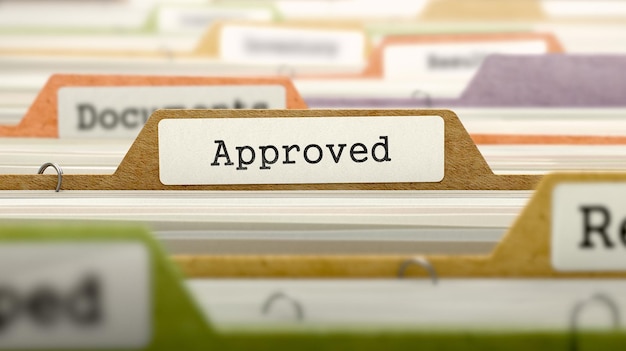Self-Managed Super Funds (SMSFs) give Australians greater control over their retirement savings. With this control comes the obligation to manage the fund in strict accordance with Australian law. One of the most important responsibilities trustees have is the annual compliance audit.
These audits are not optional. They are a legal requirement and ensure that SMSFs remain compliant with superannuation laws. The consequences of failing an audit can be severe, including financial penalties, disqualification of trustees, and in some cases, forced wind-up of the fund.
This guide outlines the key requirements of an SMSF audit, what auditors will look for in 2025, and how you can prepare to ensure a smooth and compliant audit process.
Why SMSF Audits Are Mandatory
Each year, every SMSF must be audited by a registered SMSF auditor. This is a legal requirement under the Superannuation Industry (Supervision) Act 1993 (SISA) and the Superannuation Industry (Supervision) Regulations 1994 (SISR).
The audit covers two distinct areas:
-
Financial Audit – Verifies the accuracy of the fund’s financial statements.
-
Compliance Audit – Ensures the fund operates within the rules set out in SISA and SISR.
The Australian Taxation Office (ATO) oversees the SMSF sector, which now holds more than $1 trillion in assets. With over 625,000 funds operating in Australia, the ATO places a high priority on audit quality and trustee accountability.
What SMSF Auditors Must Do
Only individuals registered with the Australian Securities and Investments Commission (ASIC) can audit an SMSF. These auditors must hold appropriate qualifications and adhere to auditing standards, including:
-
ASAE 3100 (Compliance Engagements)
-
ASAE 3000 (Assurance Engagements other than Audits or Reviews of Historical Financial Information)
-
GS 009 (Auditing Self-Managed Superannuation Funds)
Auditors are expected to:
-
Evaluate the level of risk and materiality in the fund
-
Collect sufficient audit evidence
-
Maintain thorough documentation of findings
-
Issue an Independent Auditor’s Report (IAR)
-
Lodge an Auditor Contravention Report (ACR) if the fund breaches compliance rules
Key Compliance Areas Audited under SISA
Auditors check the SMSF against multiple provisions of the law. These checks focus on fund structure, operations, investments, and trustee conduct.
| Provision | Requirement |
|---|---|
| Section 17A – Fund Definition | The fund must meet the definition of an SMSF, with no more than six members, all acting as trustees or directors of the corporate trustee. |
| Section 35AE – Record Keeping | Financial records must be in English and accessible in Australia for at least five years. |
| Section 35B – Statements | Trustees must prepare and sign financial statements annually. |
| Section 62 – Sole Purpose Test | The fund must exist solely to provide retirement or death benefits. No personal use of fund assets is permitted. |
| Section 65 – Loans to Members | The fund must not lend money or provide financial assistance to members or their relatives. |
| Section 66 – Related Party Acquisitions | The fund cannot acquire assets from related parties unless permitted by law and purchased at market value. |
| Sections 67, 67A, 67B – Borrowings | Borrowing is only allowed under limited circumstances, such as through a limited recourse borrowing arrangement (LRBA). |
| Sections 82–85 – In-house Assets | In-house assets (related party investments) must remain under 5% of total fund assets. |
| Section 103–105 – Trustee Records | All trustee declarations, investment decisions, and minutes must be retained for at least ten years. |
| Section 109 – Arm’s Length Dealings | All fund transactions must be conducted on commercial terms. |
| Section 126K – Disqualified Trustees | Trustees must not be disqualified. Auditors must check ATO, ASIC, and bankruptcy registers. |
Additional Regulatory Obligations under SISR
Apart from SISA requirements, auditors must also ensure that SMSFs comply with key regulations under SISR.
| Regulation | Requirement |
|---|---|
| 1.06(9A) – Pension Payments | SMSFs paying pensions must ensure minimum amounts are withdrawn each financial year. |
| 4.09 – Investment Strategy | Trustees must prepare, implement, and regularly review a written investment strategy. |
| 4.09A – Separation of Assets | SMSF assets must be kept separate from personal or business assets. |
| 8.02B – Asset Valuations | Trustees must value assets at market value each financial year using objective data. |
| 13.18AA – Collectables | Collectables (e.g. artwork, wine, jewellery) must be insured, stored securely, and not used personally by members or related parties. |
ATO Audit Priorities for 2025
The ATO continues to emphasise audit quality and trustee accountability. In 2025, it has identified two key areas of focus:
| Audit Focus Area | Details |
|---|---|
| Market Valuations | Trustees must provide documentation to support all asset valuations. Repeating prior year values without justification is considered high risk. |
| Disqualified Trustees | Auditors must confirm trustees are not disqualified, bankrupt, or banned by ASIC. This requires checking multiple official registers. |
In addition, the ATO closely monitors high-volume auditors and may conduct quality reviews to ensure audits meet professional standards.
How to Prepare for Your SMSF Audit
Proactive record-keeping and good fund management are key to passing your audit smoothly. Here’s what trustees should do:
| Action | Reason |
|---|---|
| Maintain detailed records throughout the year | Makes audit preparation easier and faster |
| Keep trustee meeting minutes and declarations | Demonstrates proper governance |
| Review investment strategy annually | Required by law and reviewed by auditors |
| Respond promptly to auditor queries | Delays can lead to audit issues and ATO scrutiny |
| Stay up to date with ATO guidance | Reduces the chance of breaches or errors |
Why Choosing the Right Auditor Matters
Engaging a qualified, experienced SMSF auditor is vital. A good auditor will not only identify compliance breaches, but also guide you in addressing issues early and preventing further risk.
| What to Look For | Why It Matters |
|---|---|
| ASIC registration | Only registered SMSF auditors can legally conduct audits |
| Proven knowledge of SISA/SISR | Ensures accurate, legally compliant audit outcomes |
| Professional conduct and transparency | Builds trust and reduces risk |
| Willingness to explain findings | Helps trustees better manage their fund |
Final Thoughts
SMSF compliance audits are a vital part of running a fund responsibly. With growing scrutiny from the ATO and an evolving regulatory landscape, trustees must be well-informed and well-prepared.
Understanding what auditors look for, maintaining up-to-date records, and seeking advice when needed can protect your fund, your members, and your future. In 2025, the message is clear — compliance is not optional, and preparation is the best defence.



